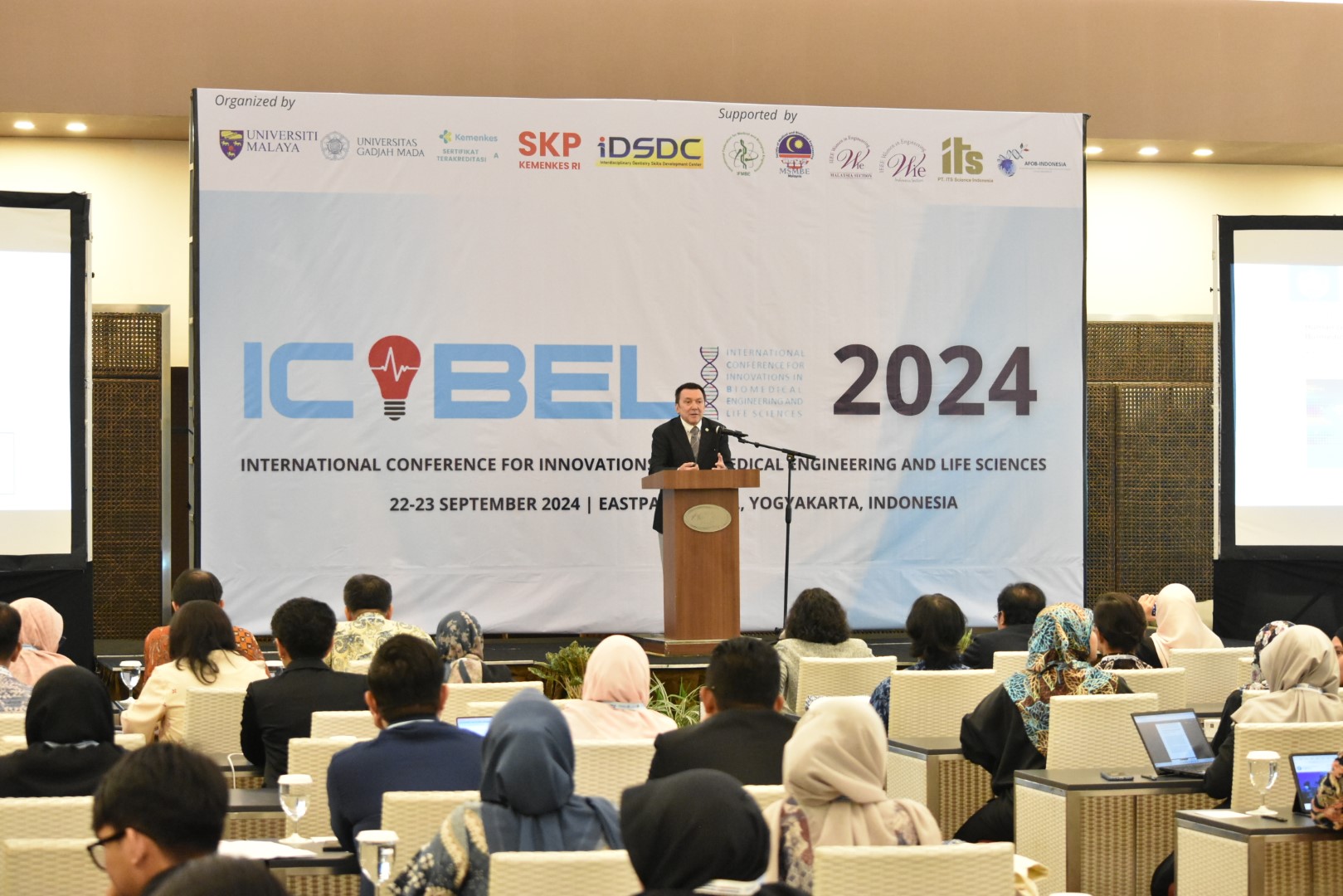Universitas Gadjah Mada (UGM) collaborates with Universiti Malaya to host the International Conference for Innovations in Biomedical Engineering and Life Sciences (ICIBEL), taking place on 22-23 September 2024, at the Eastparc Hotel, Yogyakarta.
This conference serves as a significant platform for academics, researchers, and professionals from around the world to discuss the latest developments in biomedical engineering and life sciences. ICIBEL focuses on innovation in the biomedical field and serves as a strategic forum for experts to share knowledge, disseminate research findings, and expand international cooperation networks.
This year, UGM is the host, with Prof. drg. Ika Dewi Ana, M.Kes., PhD., from the Faculty of Dentistry, Universitas Gadjah Mada (FKG UGM), serving as Co-Chair of the event. She emphasized the importance of this conference in advancing global biomedical research. “We hope that ICIBEL 2024 will foster closer collaboration between academia and industry, and become a momentum to advance knowledge in the biomedical field, especially in achieving sustainable development goals,” stated Prof. Ika.
The conference was officially opened with a speech from Prof. Ratko Magjarevic, President of the International Federation for Medical and Biological Engineering (IFMBE), who highlighted the importance of innovation in addressing global health challenges. “ICIBEL serves as a vital platform for facilitating the exchange of ideas and promoting cross-border collaboration in the biomedical field,” said Prof. Ratko.
Other plenary speakers included Isa Anshori, S.T., M.Eng., Ph.D., from Bandung Institute of Technology; Dr. Muralitharan Paramarusua from the Ministry of Health Malaysia; Prof. Gilson Khang from Chonbuk National University, South Korea; and Prof. Xiaoli Guo from Shanghai Jiao Tong University, China. They discussed medical innovations ranging from medical devices to nanotechnology for regenerative medicine. In addition to plenary sessions, ICIBEL 2024 also featured invited speakers from countries such as Malaysia, Indonesia, Turkey, Taiwan, and several European nations.
The event also included paper presentations from researchers. The presented research papers will have the opportunity to be published by leading international publishers, such as Springer, and indexed in ISI Proceedings, Scopus, and Google Scholar. High-quality works will also be published in the journal Medical & Biological Engineering & Computing (MBEC), which has an impact factor of 3.2 and is ranked Q2.
Co-Chair Prof. Ika Dewi Ana also emphasized the importance of providing space for young researchers to participate. “We want ICIBEL 2024 to be an inclusive platform where young researchers have the opportunity to contribute and publish their research results in high-quality journals,” she explained.
“Through strong international collaboration, we can achieve more impactful innovations in global health, particularly in developing countries,” said Ika Dewi Ana. According to her, ICIBEL 2024 not only strengthens biomedical education but also builds collaborative networks among countries. The conference underscores the role of research and technology in achieving sustainable development goals, including the development of more affordable and efficient health technologies.
As ICIBEL 2024 concludes, there is great hope that this conference will continue to serve as a venue for researchers and practitioners to jointly create far-reaching innovations while strengthening the global commitment to achieving SDGs in health and technology.
Authors: Christia Aye, Pram

